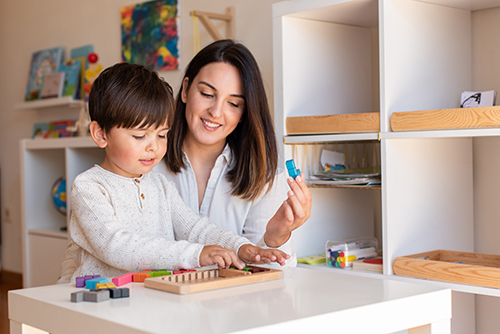by Yogi Patel - Certified Positive Discipline Trainer, Montessori Guide, and Trainer for Empowering People in the Workplace
In the symphony of parenting and teaching, the melody of empowerment plays a crucial role. Dr. Maria Montessori's wisdom guides us: "The secret of good teaching is to regard the child's intelligence as a fertile field in which seeds may be sown, to grow under the heat of flaming imagination." As we raise capable kids, we discover the transformative power of teaching practical life skills through joyful and purposeful routines.

Practical Life Foundation:
Montessori schools illuminate the path by initiating education with "practical life skills." From transferring beans between bowls to sweeping floors and scrubbing tables, these seemingly simple tasks are the seeds of confidence and capability. Engaging in purposeful activities ignites a flame of concentration and deep engagement, laying the foundation for discipline and deliberate practice – essential skills that transcend into academic, artistic, and athletic achievements.
The Secret Ingredient is Order:
Children thrive and feel safe with routines and order. Internal order helps children feel capable and safe internally. For this potential to blossom, practical life routines must be rooted in order and guided by respect. Children flourish in environments with:
● Clear learning sequences and organized environments create a foundation for skill-building
● Tasks displayed invitingly capture a child's interest, making learning an exciting adventure
● Adult encouragement, driven by curiosity, empowers children more than simple praise, fostering a sense of autonomy.
Positive Discipline authors Jane Nelsen and Lynn Lott share this notion, emphasizing that routines influence how children perceive school and relationships. Predictability provides a safety net, enabling children to engage readily and become self-reliant.
The Montessori Quote: "Help me do it myself."
Phase In with Patience:
Bringing this empowering approach home requires co-creating routines with realistic expectations. Begin by helping children navigate new challenges, gradually withdrawing support as skills solidify through practice. Visual charts breaking down tasks into manageable steps provide a roadmap for success. Guide, supervise, and eventually observe as children fully take responsibility. Patience, encouragement, and repetition are the nurturing waters that cultivate capable and contributing young minds. Challenge ourselves to step back and not intervene unless absolutely necessary.
Moving forward:
In the grand tapestry of parenting and teaching, teaching practical life skills emerges as a vibrant thread, weaving independence, confidence, and joy into the fabric of a child's development. Driven by the Montessori tag, let us embark on this journey, sowing seeds of capability with purposeful routines. As we nurture our children's independence through practical skills, we prepare them for the challenges of today and empower them to navigate the complexities of tomorrow with joy as their constant companion.
Share what is working for you after you try some of the points in this blog. Wishing you memorable times with children!

